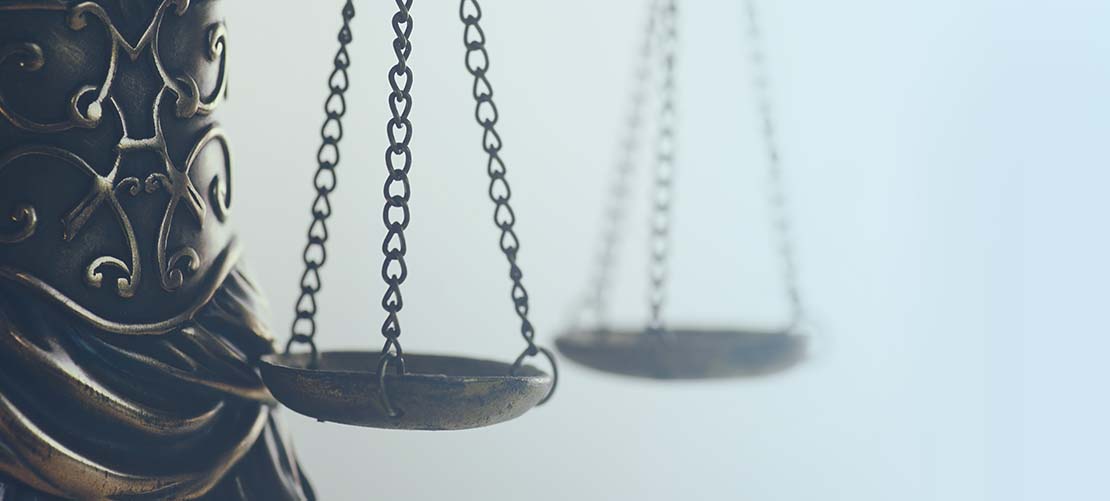Privilege in the spotlight: Al Sadeq v Dechert LLP

Introduction
The recent judgment in Al Sadeq v Dechert LLP [2023] EWHC 795 (KB) provides insight into a number of interesting issues relating to legal professional privilege, namely: (1) when legal profession privilege will be overridden (and inspection of documents ordered) in respect of documents that seek to 'further' criminal or fraudulent activity (the "Iniquity Exception"); (2) the application of legal professional privilege to investigatory work undertaken by solicitors; (3) the availability of a claim to litigation privilege by non-parties; and (4) the appropriate approach to redacting documents containing both privileged and non-privileged material.
Key takeaways
- The Iniquity Exception is narrow in scope, being limited solely to communications which are either criminal or fraudulent in themselves or intended to further such a purpose, and the evidential burden needed to justify its application is inherently fact sensitive;
- A non-party to proceedings may claim litigation privilege where they have "a sufficient interest" in the litigation in issue to justify their seeking legal advice in relation thereto; and
- Where the document as a whole does not satisfy the 'dominant purpose test' for legal professional privilege, it may be redacted and need not be provided for inspection in its entirety.
Background
Mr Al Sadeq (the "Claimant") is the former General Counsel of RAKIA, the sovereign wealth fund of the Emirate of Ras-Al-Khaimah in the UAE ("RAK"). The Claimant was arrested in Dubai (where he had been living post-retirement) and was subject to rendition to RAK, where he was detained. The Claimant was subsequently convicted of fraud in RAK and imprisoned there.
Dechert LLP and three of its former partners (Mr Neil Gerrard and Mr David Hughes, and Ms Caroline Black) (together the "Defendants") had been instructed by the Investment and Development Office of the Government of RAK to further investigate the Claimant's alleged fraud and misappropriation of public assets. The Claimant alleged that, amongst other things, the Defendants were complicit in his unlawful arrest, his detainment in degrading conditions, and in denying him legal representation.
In November 2021, the Claimant made an application for: (1) the inspection of certain documents (the "Relevant Documents"), which the Defendants had withheld from inspection on the basis that they were subject to legal professional privilege; and (2) an order that certain redacted documents, inspection of which had been provided (the "Redacted Documents"), be re-reviewed to correct the redactions.
The Claimant's application was based on the following grounds:
- The Iniquity Exception was engaged and therefore the Relevant Documents were not protected from disclosure by virtue of legal professional privilege at all;
- The Relevant Documents were otherwise not protected from disclosure by virtue of legal professional privilege (both litigation privilege and legal advice privilege); and
- The Defendants had adopted an inappropriate approach to the redaction of the Redacted Documents.
Analysis
Ground 1: The Iniquity Exception
The Claimant's application sought to extend the standard test for the Iniquity Exception, to apply to any documents that "have been generated by or report on [criminal conduct]".
The Judge agreed with the Defendants that this was not an appropriate approach: the question, in his view, was simply whether the document was made "in furtherance of an iniquitous purpose". He considered that "it cannot be right" that inspection would have to be provided of a document in which a solicitor advises a client regarding prior iniquitous conduct, on which they have sought advice, as the Claimant was proposing.
In reaching this conclusion, the Judge expressly doubted the decision in Dubai Aluminium Co Ltd v Al-Alawi [1999] 1 WLR 1964 (QBD), which applied the Iniquity Exception to a broader range of communications, noting that the decision in that case contradicted other relevant authorities and had not subsequently been followed. He considered that, should a broader test apply, it would undermine the "exceptional nature" of the Iniquity Exception, which "should not be applied lightly".
Additionally, the Judge emphasised that the "general position" is that "at least a strong prima facie case [of iniquitous conduct] is needed" to engage the Iniquity Exception. The Claimant's case rested partly on the absence of evidence, such as the Defendants' inability to produce a copy of the Claimant's extradition request, and the "absence of any positive pleaded case of denial" served by the Defendants in response. Ultimately, this was not enough for the Claimant to satisfy the relevant burden of proof.
In the circumstances, the Judge considered that the Defendants had "conscientiously" followed the standard test during the disclosure process.
Ground 2: Legal professional privilege
Legal advice privilege
The Claimant argued that the Relevant Documents relating to the Defendants' investigative work had not, in fact, been produced in a 'relevant legal context' because: (1) gathering factual information for a client did not attract privilege; and (2) the investigation carried out by the Defendants was not undertaken in their capacity as legal advisors.
The Judge disagreed, stating that it was clear the Defendants' work was undertaken with the intention of advising their clients in a legal capacity.
Litigation privilege
The Claimant referred to Minera Las Bambas SA v Glencore Queensland Limited [2018] EWHC 286 (Comm), in which Moulder J had held that it was an "established principle" that litigation privilege can only be claimed by parties to the proceedings. The Claimant noted that the public prosecutor in RAK (who secured the Claimant's conviction) was wholly independent from the Defendants' clients and, therefore, no claim to litigation privilege could arise in respect of communications made by the Defendants, or their clients, in the context of the criminal proceedings.
The Judge acknowledged that the law in this area was still unclear but could "see no reason as a matter of principle" why a third-party should not benefit from litigation privilege in appropriate circumstances. He clarified that, in order for a third-party to do so, "the question is not whether the relevant non-party has a legitimate interest [but whether it has] a sufficient interest in prospective or actual litigation such that it seeks legal advice and, in connection with that legal advice, communicates with third parties". In making this determination, he cited the following example:
"Where a victim of a crime (for example, of a fraud) has a sufficient interest in criminal litigation arising out of the crime such that they are motivated to seek legal advice, there is no reason of principle or policy why documents generated by the victim or their lawyer in communication with third parties or other documents coming into their possession or control in connection with those communications should not be protected by litigation privilege, provided that the necessary conditions are otherwise satisfied…"
Ground 3: Redaction
Finally, the Judge rejected the Claimant's argument that, unless it can be divided into severable (i.e. privileged and non-privileged) parts when redacted, a document as a whole must satisfy the dominant purpose test or otherwise be disclosed in its entirety.
The Judge agreed with the Defendants that there was no principle of this nature and, if anything, the current authorities point to the contrary (i.e. that redactions can be applied to parts of a document and remove aspects which are privileged).
The Claimant's application was therefore dismissed in its entirety.
Conclusion
This decision offers a detailed analysis of the existing authorities on the scope of the Iniquity Exception, and has subsequently been cited with approval in this regard (see Enigma Diagnostics Limited (in liquidation) & Ors v Boulter & Ors [2023] EWHC 1999 (Ch)).
The Judge's decision to divert from the approach in Minera, regarding non-parties' entitlement to claim litigation privilege, in which Moulder J followed the view of the leading textbooks (Hollander1, Thanki2, and Passmore3), is significant. In making his decision, the Judge acknowledged that the law regarding non-parties and privilege was inconclusive and remains in need of development. He noted that the views taken in each of the leading textbooks were all based on different authorities, which, in each case, he did not consider to actually support the proposition that non-parties had no entitlement to claim litigation privilege. This point therefore seems ripe for appellate consideration, and such consideration will, subject to any agreement being reached between the parties, be given in this case, as permission to appeal Murray J's decision was granted by the Court of Appeal on 12 July 2023.
Authors: Ben Sigler, Rebecca Garrick and Jennifer Cohen
1 Charles Hollander KC, Documentary Evidence.
2 Bankim Thanki KC, The Law of Privilege
3 Colin Passmore, Privilege



